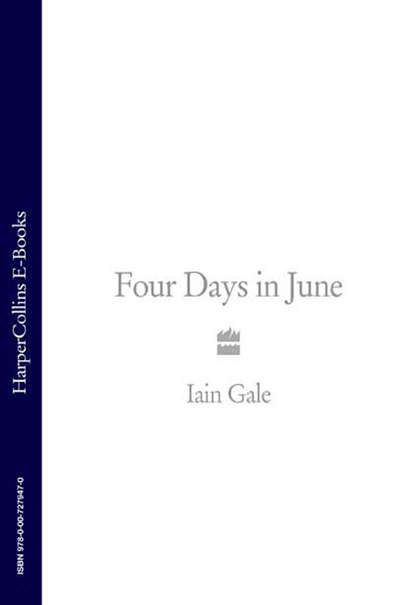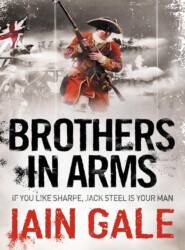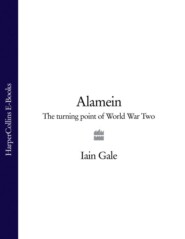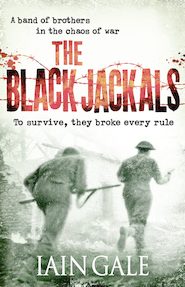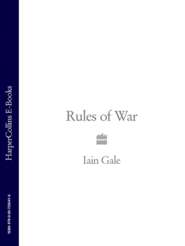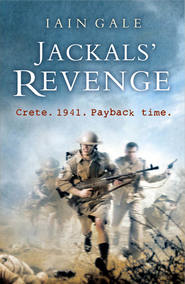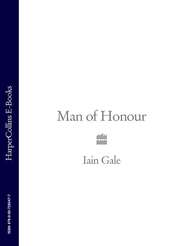По всем вопросам обращайтесь на: info@litportal.ru
(©) 2003-2024.
✖
Four Days in June
Настройки чтения
Размер шрифта
Высота строк
Поля
Outside the De Lancey house Dörnberg bade goodnight and rode off to alert his officers. The lights were still lit and Magdalene and the staff all quite awake. For, although the dawn was not yet risen, in the past hour all Brussels had come to life. She met him in the doorway.
‘Oh, William, you must come and look. It is so exciting. So glorious.’
Taking him by the hand, like an eager child on Christmas morning, she led him up the great staircase, into the drawing room and out through the open window on to the balcony.
All across the city drums beat an insistent and cacophanous stand to. Bugles called. Looking into the street he saw soldiers of all ranks, all regiments, spilling out of their billets, some with their erstwhile hosts, a few carrying children high on their shoulders. All was a clatter of soldiers, officers, horses, gun carriages, wagons.
The sky, catching the first rays of dawn, bathed the marching figures in a strange pale light, giving them an unearthly pallor. The morning was a cool and refreshing contrast to the stifling humidity of the previous day and, his tasks finished for the time being, the army about its business, De Lancey too felt refreshed and allowed himself a moment of relaxation as the couple watched in awe as the spectacle unfolded before them.
At first it seemed very solemn. Picton’s division, Kempt’s brigade first, the regiments marching past in column of threes. He saw the 32nd, the men looking exhausted rather than jubilant. No drums played, merely the fifes whistling the plaintive tones of an old march, ‘Guilderoy’. A sudden fear welled inside him. Not for himself, but for Magdalene. She would go to Antwerp. Certainly. But he realized now that he was leaving her as he had promised he never would.
Then the mood changed, and momentarily his fear passed. Another regiment, the 28th, appeared in swaggering style, their band playing ‘The Downfall of Paris’, the old Revolutionary air, the ‘Ça Ira’, the tune that the British had stolen from the French and renamed, the tune which had marked the redcoats’ progress to victory through Spain and into France. And after them came a regiment of Highlanders, swinging down the street, heading for the Charleroi road. By their kilts and the deep green of their facings and their regimental colour, De Lancey recognized them as the 79th, the Camerons.
‘There, Magdalene. Look. Your countrymen.’
‘Oh, William. How bold they look. How very fierce.’
As they passed below the little wrought-iron balcony their pipers struck up the regimental march, and she gave a little jump. And then a huge smile. Tears began to run from her eyes. She looked at him. Pulled him down towards her. Held him as tight as her pale, thin arms could manage. Gently, De Lancey placed his own arm about her waist and ran his hand up her back.
After the Highlanders came the Rifles. Unusually towards the rear of the column. Not for long, he thought. ‘First in, last out’ their motto. Even as he looked, their pace began to quicken. Once on the open road they would open up to double time – light infantry pace. No band for them. Instead they were singing, ‘The girl I left behind me’.
And with it his fear returned. Magdalene alone. Without him. Perhaps forever.
‘Oh, William, I shall never forget this moment.’ She pressed closer to him. Turned again towards the endless column of marching men.
De Lancey followed her gaze and lost himself in the spectacle. Soon. It would be soon now. He felt the thrill rise within him. Soon they would find Bonaparte. And then a battle. Silently, he watched the men file past and prepared to say goodbye.
DAY TWO (#u82ef8fd5-52e4-5198-bb63-6d9ed49809ad)
FIVE
Braine-le-Comte, 9 a.m. Macdonell
Slowly, and with carefully measured pace, he rode the big grey horse up the cobbled main street of Braine-le-Comte. Ahead of him the way was blocked by a jubilant crowd – peasants, townspeople and soldiers, in British red and Belgian blue. Some civilians, smiling broadly, made effusive gestures, offered bottles of the local schnapps. A few of the soldiers accepted. Belgians rather than British, he presumed. A group of children had begun to run alongside him, half-skipping, half-marching, singing in French:
‘Dansons la carmagnole, Vive le son, vive le son Dansons le carmagnole Vive le son du canon.’
Macdonell recognized the song of the French Revolutionary Republic. No more dangerous now than a children’s rhyme. He smiled at them, then looked up at the high windows of the thin, red-brick houses which lined the street and out of which people were now leaning, straining to catch a glimpse of this moment in history which, without warning, had overtaken the drab existence of their little town. They were women mostly, of all ages and stations, shouting unintelligible flatteries, waving lace handkerchiefs or lengths of orange silk. More scraps of orange material of all sorts were pinned up all along the street – on the walls, signposts, trees. Orange. National colour of the Kingdom of the Netherlands and as close to an expression of loyalty as these people could find for the strange red-coated soldiers who had come to ‘save’ them from the little man whom some still called ‘the monster’.
Macdonell looked as if he might manage the job on his own. Blue-eyed and with a shock of wavy, fair hair, Lieutenant-Colonel James Macdonell had been a professional soldier in the army of King George for more than a score of his thirty-seven years. A soldier ever since that day in 1794, when he had left Oxford and the unsatisfying indolence of his studies to join the Highlanders.
At six foot three inches, half a foot above the average, he sat tall in the saddle, his stature increased all the more by the high, false-fronted black shako, with its gold and crimson cords, shining brass plate of the Garter Star and spotless red and white plume. At his side, in its black leather scabbard, hung a straight-bladed infantry sword – 32 inches of tempered Sheffield steel.
As he continued along the street, Macdonell’s gaze was caught by the dark eyes of a particularly pretty local girl who had come to smile at him from the balcony of a second-storey window. Out of courtesy and intrigue, he smiled back. Then, lest his men should notice, although they were some distance to the rear, he looked away. And in doing so he began to pay closer attention to the people pressing around him – their clothes the long blue smocks of farm labourers. There were women in long-eared caps and thick petticoats. Hard-featured, heavy-set, peasant stock. They had come into town, he imagined, to see the English march through. To welcome him and his men as liberators. Not since Spain had Macdonell received such a hero’s welcome. And this time he had not yet even helped win a battle. Had not yet killed a single Frenchman. They had come too, he quickly realized, with an eye to a little business. For apart from the schnapps he could now see that they had come with cheeses, sides of ham, sausages, live chickens, bread, dark-looking beer. Dangerous place for an army, he thought. He saw too that, beyond the crowd, the main street of this, the key town on the advance of the Anglo-Allied army, through which many units, he presumed, were to pass that morning, had become quite impassable, blocked with wagons – civil and military – in a tangle of transport and manpower which could only be left to the provosts and Scovell’s staff cavalry.
Macdonell turned his horse and trotted her quickly back down the street, towards the waiting head of the column, left in the charge of young Gooch. He liked the boy. One of the battalion’s more promising ensigns. He’d joined the colours three years ago, just a year after Macdonell himself had transferred into the regiment.
‘Mr Gooch. We’ll stop on the east side of the town, away from the main street. Move the men off, if you please. Down that street. Over there. Oh, and send a runner to Colonel Woodford. Tell him that the route through the town is blocked to all troops and suggest he call up the provosts.’
‘Very good, sir. Sar’nt Miller, have your men right face and double into the fields. Oh, and find me the colour sar’nt.’
‘Sir.’
Miller, five foot eight of solid muscle and solid good sense, twice Gooch’s age, turned to the ranks. Raised his voice. Changed its tone. ‘Number one section. By the right. Right turn.’ A crash of boots coming down in unison – grinding leather and hobnails on the cobbles. ‘Forward march.’
With a swinging, rhythmic action, led by Miller’s men, the two light companies of the 2nd and 3rd Regiments of His Majesty’s Foot Guards moved off the main road leading into the town of Braine-le-Comte and down the side-street which led up towards the rising ground of the surrounding fields. Macdonell and the other mounted officers went with them. Reaching the open country he gently urged his horse over a low hedge before dismounting and handing the reins to his soldier-servant, Tom Smith, who, as ever, had materialized silently at his side.
Lush country this, he thought. Very different to Spain. Villages and farms in all directions. Fields rich with crops – wheat, rye, hops. Here and there the top of a steeple, just visible over the gently undulating ground. The roads, though, were not so good. Worse in fact than the Peninsula, were that possible. Uneven surfaces and in bad repair. And now made no better by the rain which had featured on and off throughout the early morning. There was too a sense of neglect about the countryside. Of resignation to forever being in a state of disruption. A sense of a land which, over the centuries, had become accustomed to being no more than a corridor for so many armies. Not just those which had fought here these last twenty years, but the armies of Marlborough’s time and, even before then, those of the old kings of the Middle Ages. This was history-book country. Nursery names – Crécy, Oudenarde. The land was inured to the passage of men. Men on their way to die. It was a land scarred by death and, Macdonell reckoned, would long remain so.
He shivered.
‘Colour Sar’nt Biddle.’
He or Miller never seemed very far away.
‘Sir?’
‘Make sure that the men get something to eat. And that they’re fit to march.’
The men could really suffer on these roads, he thought. Of course their shoes were nothing like the sandals and rags to which some, even officers, had been reduced in Spain. And, since Brunel’s business had taken over the footwear provision, gone too were those ridiculous shoes with the clay insoles, bought in their thousands in a contract which, all knew, had been designed merely to line the pockets of those charming commissary officers at the Horse Guards. Shoes which would disintegrate with the first few drops of rain or on crossing a single stream.
Even so they had come eight, perhaps ten miles already this morning. Smith had woken him at Enghien, long before dawn, with the movement order on Braine-le-Comte. By 4 a.m. they had been en route. Macdonell counted himself fortunate. Some of the officers had managed no sleep whatsoever, having come directly from the grand ball held the previous evening in Brussels by the Duke and Duchess of Richmond. Although invited, Macdonell had chosen not to attend. Oh, he loved to dance. But his way was real dancing. Highland dancing. The dancing in which he delighted back home at Invergarry. Anyway, this was no time to be dancing. And to prove it, George Bowles had come rattling back from Brussels at 2 a.m. to join the route.
Dear George. Six years his junior. A Wiltshire squire’s son and ever the dashing, dandy captain of Number Seven Company. Macdonell caught sight of him now, riding off the road, still clad in his elaborate full dress uniform. And he knew that George was not the only officer on the march that morning dressed in muddy dancing pumps and white hose. But it had not been with the expected tales of amorous exploits that George had returned to camp. As luck would have it he had far more piquant news. He had discovered what they were to do. How they were to be engaged in the coming campaign. And before they had set off that morning he had promised Macdonell a full explanation of what had now brought them to this sodden field after five hours on the road.
As the men unslung their hard, wooden-framed back-packs, removed their battered shakos and prepared to brew their tea, Bowles approached Macdonell, dismounted, leading his horse. He was looking, evidently, for his servant and his baggage which had been strapped, as Macdonell’s was, to a single mule – the transport allowance of every field officer of the Guards. Bowles saw the big Scotsman and, having hallooed him across the field, came shambling over – a difficult feat in his improbable court dress – through the mud and trampled crops.
‘James. James. Have you seen Hughes? Where’s the man gone? I must have my valise. Look at me. This ridiculous costume. And it’s utterly ruined. Another visit to my tailor.’
For once he did not exaggerate. His white silk stockings hung in a sodden, crumpled mess, leaving a gap of bare leg below once-white breeches. On his feet he wore a pair of what had been dancing pumps, one missing a gold buckle.
‘Well, George. You know as well as I do that what pleases the ladies in the ballroom will not suit you for dancing along the road towards the French. And no, I have not seen your man. But now do tell me, as you promised last night. Continue your account, and I myself promise that I in turn will lend you a pair of my own grey overalls.’
‘In your debt, James. Once again. In your debt.’
They were old friends. Had served together through Spain. This was not the first time that one had come to the other’s rescue.
‘And yes, you are quite right, James. I was with the Peer last night. We were at supper at the Duchess’s ball when the Prince of Orange, our dear “slender Billy”, entered the room and spoke a few words in his ear. Wellington told him to go to bed. To bed, James. I heard him myself. In full view of the General Staff. “Go to bed,” he said. And d’you know what the sprat did? He went to bed. Straightway.
‘Well, we sat on. For a half hour. And then Wellington turns to Richmond and declares that he thinks that he himself will go to his own bed. Well, James. I knew what was up and I was having none of it. And sure enough. For no sooner had our old commander made his goodnights and left the ballroom than, as if by some prearranged sign, there was a general exodus of all the senior staff – Daddy Hill, Picton, Kempt, Ponsonby, Uxbridge. Some officers too had already begun to make their own farewells – or I dare say their arrangements for the night, so to speak. But James, I stayed, for I was determined to know more. And sure enough, ten minutes later my good friend Richmond appears from within the house, across the yard from the dancing room, and beckons to me. The Peer, it seems, had asked him for his best map of the area. “Well, George,” says he, “he laid it on a table and, standing before us all, declared as cool as you like: ‘Gentlemen. Napoleon has humbugged me, by God. He has gained twenty-four hours’ march on me.”’
‘James, Bonaparte has attacked at Charleroi and driven back the Prussians. The battle is on. I tell you, we will not rest here, but must march on – to Nivelles. And then further still. To a crossroads – Les Quatre-Bras. That is where Wellington first intends to hold the French. We have a march ahead of us and a battle at the end of it.’
He paused. But only briefly.
‘More than this, though, James. And here is the real route of our destiny. Richmond showed me the map itself and the place on it where the Peer had placed his mark. Had dug it in hard with his thumbnail. It is a long ridge, James. A ridge. Barossa over again. He had seen it, ridden the very ground, he told Richmond, not a year ago. He had marked it out and had the engineers draw up a map of it and kept it in his mind. A ridge. It is to the north of the crossroads. Runs in a line below a road between two villages. That, my friend, is where Wellington intends us to defeat Bonaparte. Between those two villages – Genappe and Waterloo. I cannot find the latter one on the map, but I am sure that is the name Richmond gave.
‘And now, James, if you please. The overalls.’





